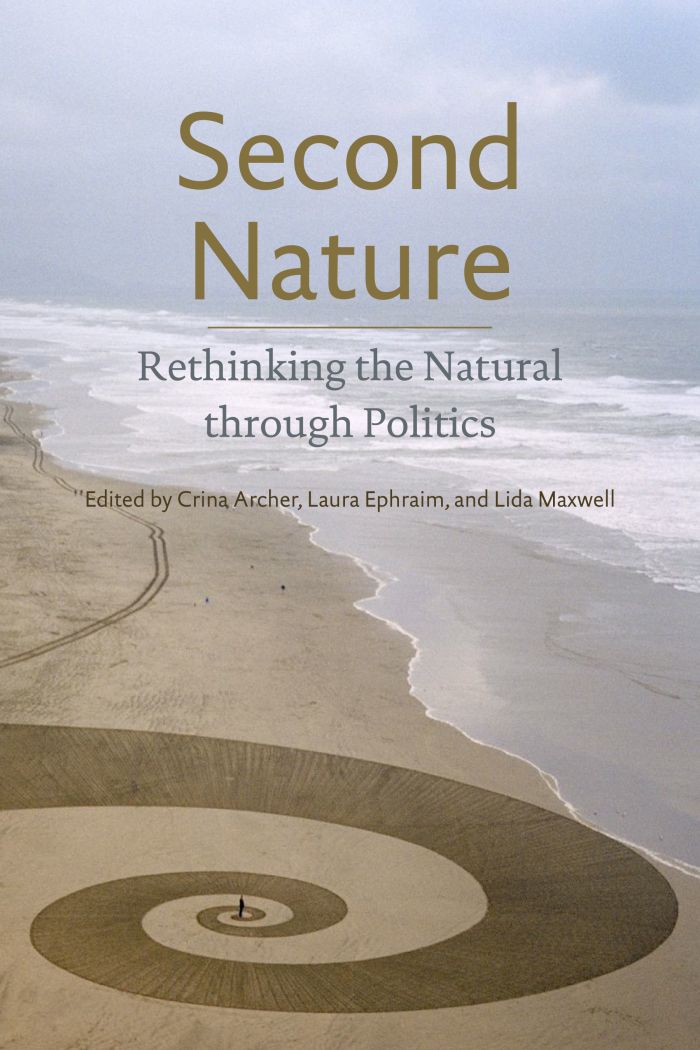Second Nature
Rethinking the Natural through Politics

Fordham University Press
This book can be opened with

The essays collected here, by both eminent and emerging scholars, engage interlocutors from Machiavelli to Arendt. Individually, they contribute compelling readings of important political thinkers and add fresh insights to debates in areas such as environmentalism and human rights. Together, the volume issues a call to think anew about nature, not only as a traditional concept that should be deconstructed or affirmed but also as a site of human political activity and struggle worthy of sustained theoretical attention.
“Archer, Ephraim, and Maxwell have compiled a fascinating array of analyses of what Nietzsche termed ‘second nature’: the agonistic, original attempt to create and recreate the human self. The collection brings together familiar and new voices, each investigating the overlaps and mutual constitutions between nature and culture, human and nonhuman, life and matter. The book leaves us aware of the struggles with the world in which beings of all sorts engage, over the materiality of life, over the situatedness of being, and over the inevitability of death.”
Crina Archer (External Editor)
Crina Archer is a Ph.D. candidate in Political Science at Northwestern University. She is completing a dissertation project that examines temporality in democratic political thought, with a focus on temporal representations of revolutionary change. She is coauthor of Obstacles to Ethical Decision Making: Mental Models, Milgram, and the Problem of Obedience (Cambridge University Press, 2013).
Laura Ephraim (External Editor)
Laura Ephraim is Assistant Professor of Political Science at Williams College. Her research considers intersections between political theory, the history of science, and technofuturism.
Lida Maxwell (External Editor)
Lida Maxwell is Assistant Professor of Political Science at Trinity College. Her research interests include contemporary democratic theory, the history of political thought, and law and politics. She is currently working on a book about political trials. Her book project, Public Trials, explores the legal and political dilemmas that arise from the intersections between law and politics in several eighteenth-, nineteenth-, and twentieth-century political trials, as well as the implications of these dilemmas for contemporary political theory and practice.
Crina Archer is a Ph.D. candidate in Political Science at Northwestern University. She is completing a dissertation project that examines temporality in democratic political thought, with a focus on temporal representations of revolutionary change. She is coauthor of Obstacles to Ethical Decision Making: Mental Models, Milgram, and the Problem of Obedience (Cambridge University Press, 2013).
Laura Ephraim (External Editor)
Laura Ephraim is Assistant Professor of Political Science at Williams College. Her research considers intersections between political theory, the history of science, and technofuturism.
Lida Maxwell (External Editor)
Lida Maxwell is Assistant Professor of Political Science at Trinity College. Her research interests include contemporary democratic theory, the history of political thought, and law and politics. She is currently working on a book about political trials. Her book project, Public Trials, explores the legal and political dilemmas that arise from the intersections between law and politics in several eighteenth-, nineteenth-, and twentieth-century political trials, as well as the implications of these dilemmas for contemporary political theory and practice.

